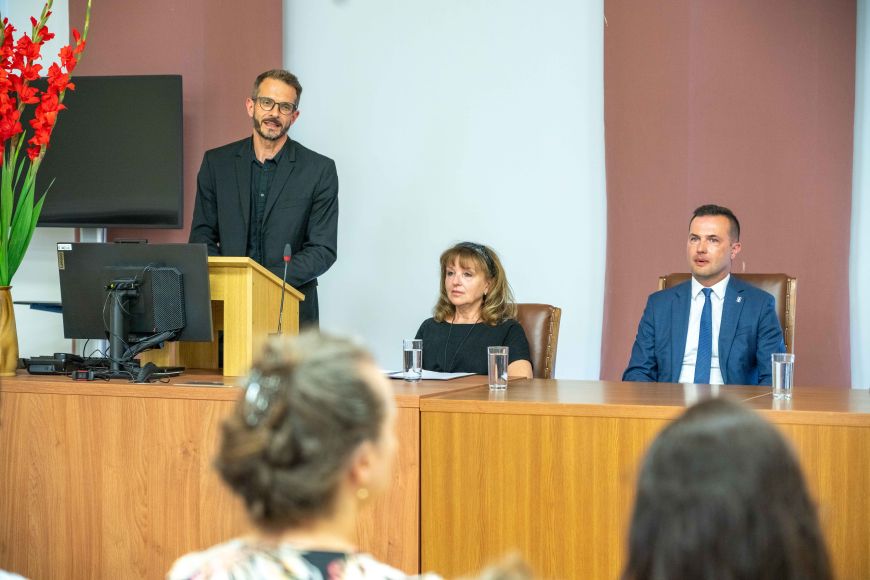“I am glad that Eva Rusínová, the head of the Department of Czech for Foreigners, has managed to keep this tradition alive,” said Petr Dytrt, Vice-Dean of the Faculty of Arts for Internationalisation and Information Technologies. Participants in this year’s 57th edition will spend nearly four weeks in Brno and, in addition to learning Czech, will enjoy a rich supporting programme of discussions, lectures and film screenings.
“I hope that you will enjoy learning and getting to know the Czech language. I appreciate your courage, because Czech is not an easy language to master, but I believe you will like it,” said Petr Suchý, Masaryk University’s Vice-Rector for Internationalisation, at Monday’s opening ceremony, who also mentioned his personal connection to the event, having worked as one of the guides at the Department of Czech for Foreigners Summer School in the 1990s. He also wished all the students a lot of patience.

“Please don't be afraid to speak, it is the hardest thing to do, but also the most important,” Zuzana Šepsová, a lecturer in the Higher Education and Lifelong Learning Section of the Czech National Agency for International Education and Research, told the students. “And don’t be afraid to speak to a Czech,” she added with a smile. The head of the Department of Czech for Foreigners and director of the Summer School of Slavonic (Czech) Studies subsequently introduced the students to their Czech teachers and guides. The courtyard of the faculty building then rustled with the familiar foreign-accented Czech phrase: “Ahoj, jak se máš?” (“Hello, how are you?”).
Yesterday, students were divided into eight classes according to their level of proficiency and now attend five classes a day from Monday to Saturday. The afternoon programme includes lectures, talks, introductions to Czech literature and culture and specialised seminars. In the evenings there is a film club, singing lessons and a reading by poet and translator Tomáš Mika. Students also explore interesting places in Moravia and Bohemia, including Lysice, the Javoříčko Caves and a day trip to Prague.

Participants in the Summer School of Slavonic (Czech) Studies include students who have received scholarships from the Czech Ministry of Education, the Department of Czech for Foreigners at the MU Faculty of Arts and those who pay for their stay themselves. They come from Bosnia and Herzegovina, Bulgaria, China, Denmark, Egypt, Finland, France, Canada, Japan, Portugal, Greece, the United States, Sweden and other countries. The oldest participant this year was born in 1952, the youngest in 2007. Many students return to Brno year after year.
